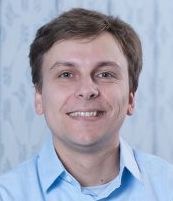BIG Summer Research Seminar: Eric Deeds, Associate Professor, Integrative Biology & Physiology – Vice Chair, Life Sciences Core at UCLA
Boyer 159 611 Charles E. Young Dr. E., Los Angeles, CA, United StatesTITLE: "A lack of distinct cellular identities in scRNA-seq data: revisiting Waddington’s landscape." ABSTRACT: Single-cell RNA sequencing is revolutionizing our understanding of development, differentiation and disease. Analysis of this data is often challenging, however, and tasks like clustering cells to uncover distinct cellular identities sometimes yields results that fail to align with existing biological knowledge. We analyzed […]











